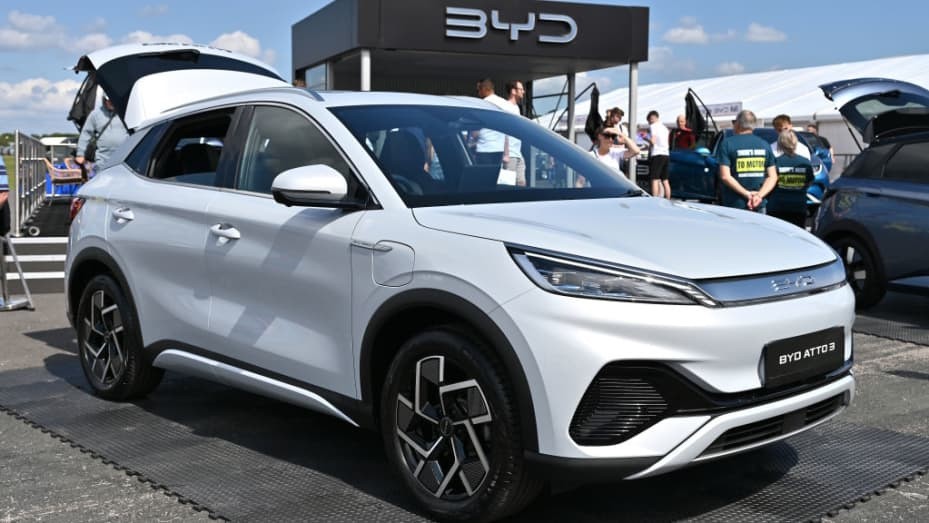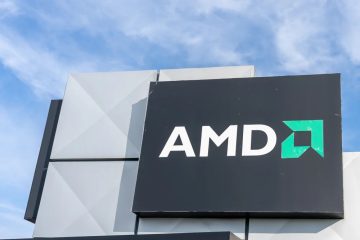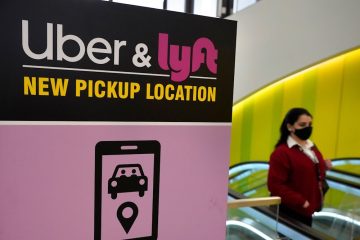China’s EV makers set sights on Latin America

When Ford Motor shut its factory here in 2021 after more than a century in the country, Uelcson Alves and the automaker’s thousands of other workers in this once-thriving Brazilian town panicked. “It was devastating. Stores started closing and then health clinics and schools,” said Alves. It was the middle of the pandemic, and his family, like many others, suddenly had no health insurance, he said. The town’s streets became eerily empty as many families simply left in search of work elsewhere.
But things are looking up these days in Camaçari. The Chinese are here. BYD, one of the world’s biggest electric-vehicle producers, bought the abandoned plant last year and is rapidly transforming the 1,100-acre plot on Henry Ford Avenue into its Latin American hub. Largely shut out of the U.S. and facing punitive tariffs in Europe, Chinese makers of electric and hybrid vehicles have flooded Latin America and other regions with cheap cars after ramping up production at home—a strategy that threatens some of the world’s largest automakers at a time of deepening global trade tensions.
Latin America and the Caribbean—home to about 650 million people and much of the lithium that EV makers need for batteries—are among the markets at the top of the list. BYD said it is thinking about building a plant in Mexico, where some 10% of new-car sales are Chinese brands, while also rapidly expanding its fleet of electric buses from Colombia to Chile. Other Chinese companies, such as Great Wall Motor, also are moving to Brazil, taking over a Mercedes-Benz plant that was abandoned after the German company ceased car production in the country. Uelcson Alves was among thousands of workers who lost their jobs when Ford exited Brazil. “It’s a big paradigm shift,” Ricardo Bastos, Great Wall’s institutional relations director in Brazil, said in an interview. “These were two factories that produced combustion vehicles, they shut down operations and everyone was fired, and now they will be reopened to produce new technologies.”
Home to more than 200 million people, Brazil is already BYD’s biggest auto market outside China, Alexandre Baldy, BYD’s senior vice president in Brazil, said in an interview. Brazil put some 51,000 BYD cars on the road between January and September this year, accounting for about 72% of all imported cars given license plates during that period, according to the Brazilian Association of Automobile Importers and Manufacturers. That is more than eight times the number of BYD cars registered for use in the same period last year. The figures don’t include popular brands such as Fiat, which is owned by Stellantis and produced in Brazil, and which saw some 370,000 of its vehicles registered during the same period.
“Brazil has positively surprised us,” said Baldy. Costing close to $1 billion, the Camaçari plant will begin operating in December, initially churning out 150,000 cars next year and 300,000 by 2028, with some 10% of that production slated for exports to the rest of South America, he said. Some local economists question the reliance on Beijing. Since overtaking the U.S. as Brazil’s biggest trading partner in 2009, China has flooded the local market with cheap imports, contributing to a process of stark deindustrialization. Manufacturing has shrunk from 36% of Brazil’s gross domestic product in 1985 to just 11% last year.
Government officials are hopeful that Brazil will reap the benefits this time, even as part of the workforce building the plant is Chinese. Davidson Magalhães, the government secretary in charge of employment in the northeastern state of Bahia, where Camaçari is located, said he hopes the BYD factory will generate some 15,000 formal and informal jobs in the region. That is far more than the 9,000 lost with Ford’s exit. Great Wall Motor, the Chinese manufacturer of electric sport-utility vehicles and pickup trucks, said it plans to invest $1.8 billion by 2032, converting a small former Mercedes-Benz plant in Iracemápolis in São Paulo state into its own South American hub. Mercedes-Benz closed the factory in December 2020, a month before Ford shut its Camaçari plant and exited Brazil, citing tough economic conditions. Some 370 workers lost their jobs in the small sugar cane town. The closing of the Ford facility hit Camaçari’s local economy hard. The West’s legacy carmakers have struggled to keep up with Chinese production of conventional combustion-engine cars as well as EVs in some of the world’s top growth markets. Ford Chief Executive Jim Farley told The Wall Street Journal in an interview that China’s carmakers represented an “existential threat” to the company. And earlier this year, he identified South America, as well as Africa, as make or break markets for Ford.
The Biden administration has imposed a 100% tariff on Chinese EVs, while the European Union this past week imposed tariffs as high as 45% on EVs from China. Former President Donald Trump, should he win re-election, has pledged high tariffs on Chinese vehicles. Brazilian President Luiz Inácio Lula da Silva has introduced his own measures to protect local industry—by prodding Chinese makers to invest and offering automakers such as BYD incentives to build plants in the country. “The hope is that BYD intensifies its investments to produce electric cars in Brazil, generating jobs and income in the country,” Brazil’s Ministry of Industry said in a statement.
Under rules set by Mercosur, the South American trade bloc, automakers that produce at least 40% of their cars on Brazilian soil can export to the rest of South America without paying import taxes in those countries. It was a major factor behind Great Wall’s decision to produce its SUV, Haval, in São Paulo, Bastos said. BYD has battled to offset the effects of protectionist measures in the U.S. and Europe by expanding aggressively wherever and whenever it can. It already has plants in Thailand and Uzbekistan, and announced plans for factories in Turkey and Hungary.
Industry experts were initially skeptical over Brazilians’ willingness to even drive electric cars. BYD’s Dolphin model, one of the company’s most popular cars in Brazil, can only go some 170 miles before the battery needs recharging, barely enough to get to the next state in this vast country. Charging infrastructure is expensive, as are many of the EVs themselves, and Brazil’s cars are already set up to run on ethanol. Installing charging infrastructure is expensive in Brazil, as are many EV models. Consumers, however, have flocked to BYD’s low-cost models such as the Dolphin Mini. Owners of electric cars are exempt from a vehicle tax in many states, while in São Paulo they are also exempt from unpopular traffic restrictions that bar drivers from using their cars at rush hour once a week.
The savings on gasoline are worth it alone in Brazil, owners said. It costs some $57 to fill a 14-gallon tank in Brazil, equivalent to about 9% of the country’s average monthly wage. “You can drive around for free! What’s not to like?” Marcio Viana, a traveling salesman, said after test-driving BYD’s King, a plug-in hybrid, in Salvador. Currently a Chevrolet owner, Viana said it was the first time he had considered buying a Chinese-made car. In Camaçari, some locals said they remain skeptical over how much the factory will benefit the region. BYD brought in a Chinese company, Jinjiang Construction Group, to help build the plant, flooding the region with Chinese workers who mix little with the locals. “We are so busy at work that we don’t get time to see the town,” said Wu Lei, a 35-year-old construction worker from the southwestern China city of Chengdu, using his cellphone to communicate through Google Translate.
Sipping on a fresh coconut, the only Brazilian custom he has taken to since arriving in March, Wu said he shares a house with a dozen other workers and the cook they brought with them from China. BYD said it is common practice for a company to work with a construction company that it already knows for a factory that big, adding that most of the plant’s workers will be Brazilian.




